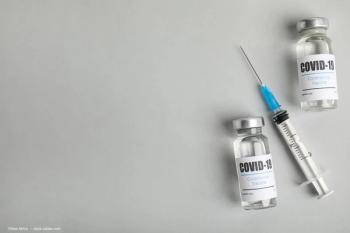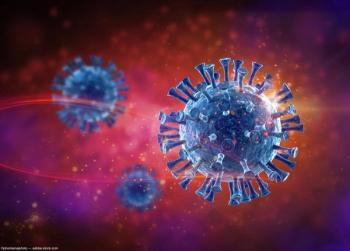
Study: Antibody titers increased significantly in older individuals who received third COVID-19 vaccine dose
According to a team of investigators in Israel, after a third dose of the Pfizer-BioNTech COVID-19 vaccine, the antibody titers increased significantly in individuals over the age of 60.
Israeli investigators have found that after a third dose of the BNT162b2 vaccine (Pfizer-BioNTech) for the COVID-19 virus, the antibody titers increased significantly in individuals over the age of 60.1
Underscoring the importance of this line of research, Noa Eliakim-Raz, MD, and colleagues from the Rabin Medical Center, Tel Aviv University Sackler School of Medicine, Tel Aviv, and the Department of Oncology, Sheba Medical Center, Tel Hashomer, Israel, explained that the durability of the response to the BNT162b2 vaccine in adults 60 years and older has not been determined, and the immune response following 2 doses of this vaccine is lower in people ranging in age from 65 to 85 years compared with those who are 18 to 55 years.2
What was reported recently was that among 4868 health care workers who received 2 doses of the Pfizer vaccine, the humoral response (IgG, neutralizing antibodies) waned significantly within 6 months after the second dose, especially among those who were 65 years and older.3
Antibody titer measurements/results
In the study under discussion, the investigators measured the anti-spike immunoglobulin G (anti-S IgG) antibody titers in those 60 years and older who received a third vaccine dose.
This age group was chosen both because of the associated risk of severe COVID-19 infection and because these patients were the first to be authorized to receive the third dose.
The anti-S IgG titers were assessed in 97 patients (median age, 70 years) before the third vaccination from August 4 to 12, 2021, and then again 10 to 19 days after the third vaccination from August 16 to 24, 2021. The investigators defined seropositivity as 50 arbitrary units (AU)/mL or higher.
The analysis showed that before the third dose administered at a median of 221 days after the first dose, 94 (97%) of the study patients were seropositive.
The investigators reported that the median antibody titer level increased significantly (p < 0.001) after the third dose, from a median of 440 AU/mL to 25,468 AU/mL and all participants were seropositive.
There was no significant (p = 0.47) correlation between age and IgG titers, and age, sex, days after first vaccination, and comorbidities were not associated significantly with higher IgG titers. In addition, no major adverse events were found.
This study adds serologic data to the clinical data on response to a third dose in adults aged 60 years or older, the investigators concluded.
References
1. Eliakim-Raz N, Leibovici-Weisman Y, Stemmer A, et al. Antibody titers before and after a third dose of the SARS-CoV-2 BNT162b2 vaccine in adults aged ≥60 years. JAMA Published online November 5, 2021. https://jamanetwork.com/journals/jama/fullarticle/278609
2. Walsh EE, Frenck RW Jr., Falsey AR, et al. Safety and immunogenicity of two RNA-based Covid-19 vaccine candidates. N Engl J Med 2020;383:2439-50. doi:10.1056/NEJMoa2027906
3. Levin EG, Lustig Y, Cohen C, et al. Waning immune humoral response to BNT162b2 Covid-19 vaccine over 6 months. N Engl J Med Published online October 6, 2021.
Newsletter
Don’t miss out—get Ophthalmology Times updates on the latest clinical advancements and expert interviews, straight to your inbox.





























